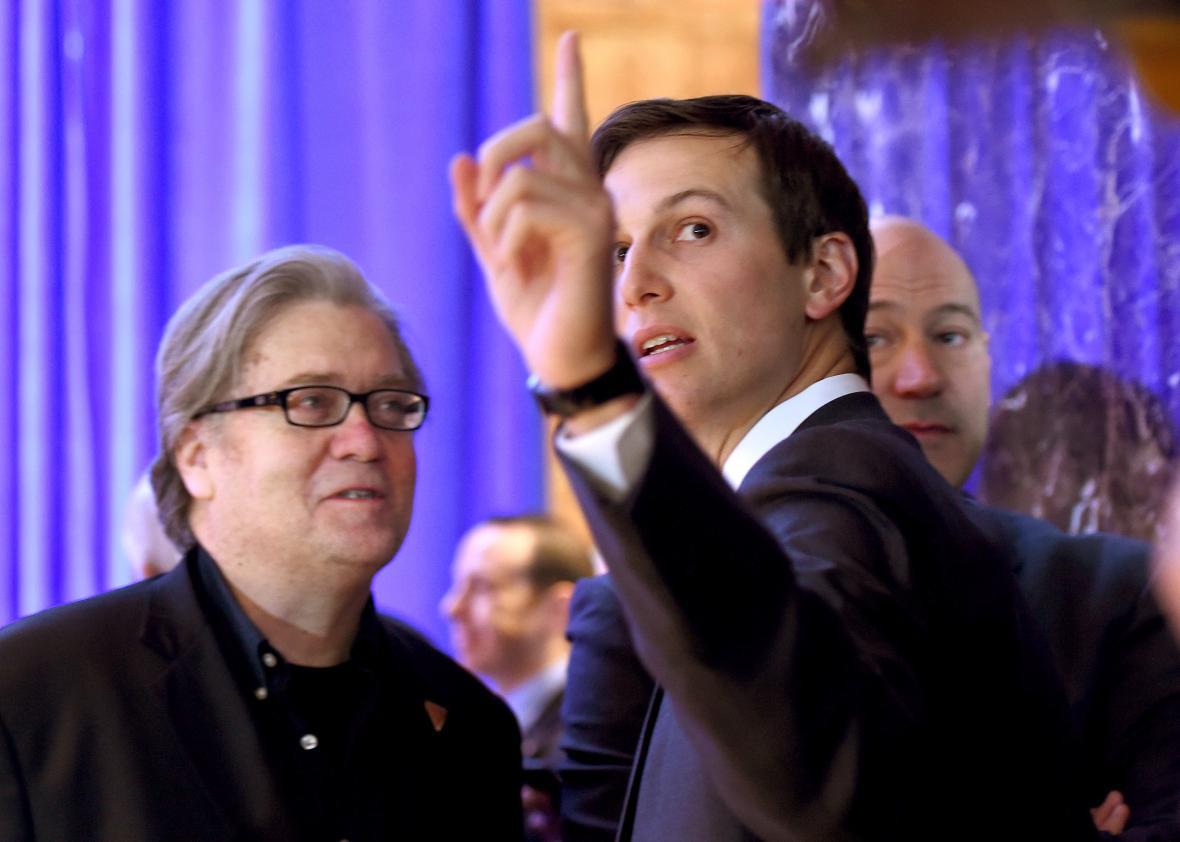“Democratic birtherism”: The Syria strike disproved many liberal conspiracy theories about Russia and Trump, Ben Mathis-Lilley writes. The “empirically unsupportable obsession with a Manchurian candidate scenario” has ended up making Trump look good. But more importantly, it has weakened the response to the real Russia scandal.
Pointless palace intrigue: Many in the press have been writing about a showdown between White House advisers Steve Bannon and Jared Kushner, in a battle where the direction of the administration is on the line. Jim Newell argues that, ultimately, the stakes are low: Neither Bannon nor Kushner has much power when up against the realities of policymaking
An IT guy and a fat kid: The lives of Kim Jong-un and Bashar al-Assad have in many ways mirrored each other, Joshua Keating writes. And both leaders have maintained power over their small parts of the world despite powerful enemies and long odds—possibly because they have “managed to create situations so unstable and desperate in their countries that they’ve made themselves indispensable.”
The average mass shooter: The gunman in Monday’s elementary-school shooting in San Bernardino, California, was the latest in what Christina Cauterucci calls “a long line of American shooters whose histories of domestic abuse were warning signs, missed or ignored by authorities, of escalating violent tendencies.” Gaping loopholes in federal law make it too easy for domestic abusers to have access to firearms, she writes, putting women and children in danger—and increasing the chances of more mass murders.
Fantastical maps: Richard Florida, who 15 years ago proposed that cities achieved prosperity when they attracted a “creative class,” has written another book about fixing American cities. In The New Urban Crisis, Florida argues that the clustering of people and financial resources in cities has been the main driver of both economic growth and inequality. City problems, Florida argues, should be considered national problems.
For fun: Logistical questions raised by Janelle Monae’s proposed sex strike.
So many questions,
Molly
